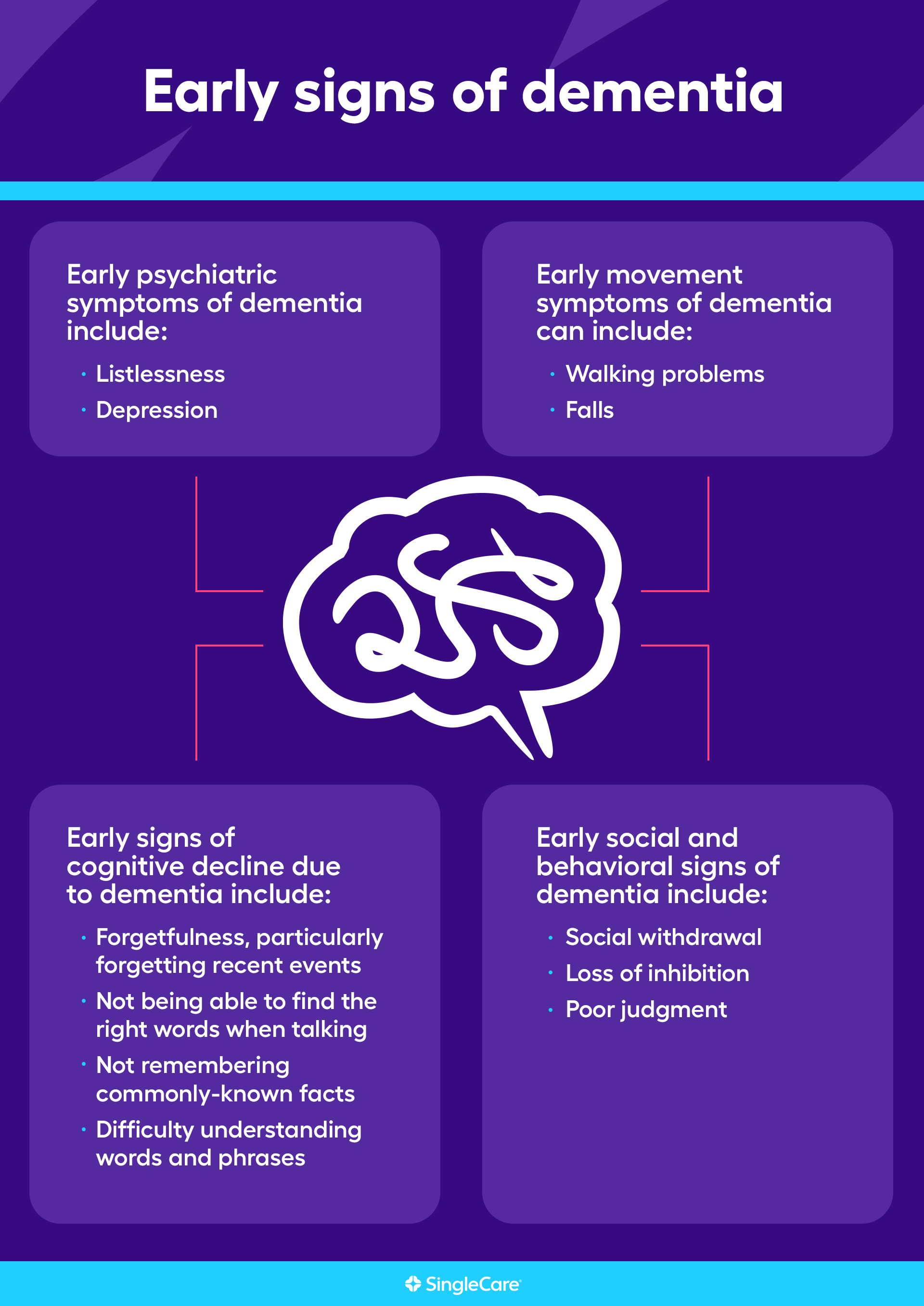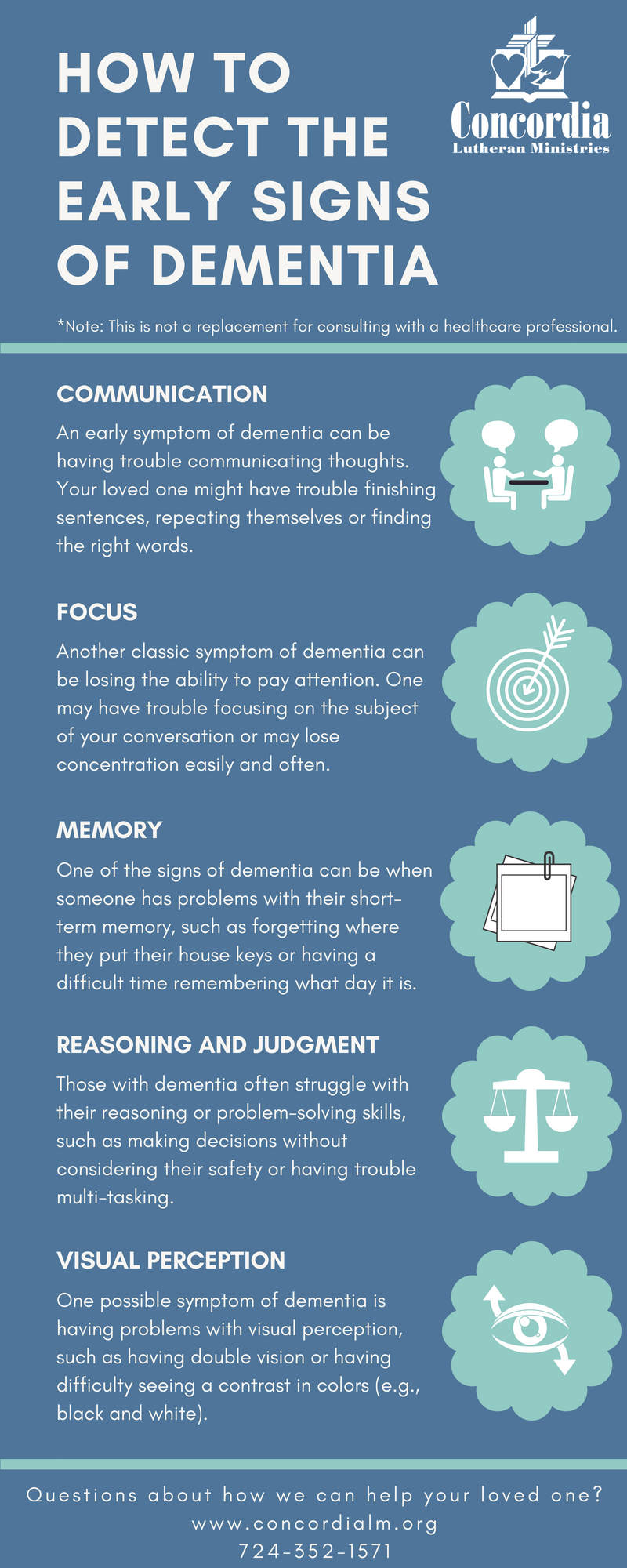Key Differences Between Vascular Dementia and Alzheimer's Disease
Key Differences Between Vascular Dementia and Alzheimer's Disease
Blog Article
Comprehending the Effect of Mental Deterioration on Every Day Life and Caregiving
Dementia affects every day life in extensive ways, affecting not just those diagnosed yet also their caretakers. As cognitive decline progresses, you might see changes in interaction and routine that obstacle both parties. Recognizing these shifts is vital for maintaining dignity and engagement. But just how do you adjust your caregiving strategies to support a person traversing this complicated journey? The solutions may stun you as we discover the nuances of this experience.
The Phases of Dementia and Their Impacts on Day-to-day Live
As you browse the trip of dementia, comprehending its stages can significantly affect just how you take care of every day life. Mental deterioration commonly advances through three major stages: early, middle, and late. In the onset, you might notice occasional memory gaps or difficulty locating the appropriate words. This can result in stress, yet identifying these indications early assists you adjust your regular and look for support.
During the center stage, you'll experience much more recognizable cognitive decrease. Daily tasks might come to be challenging, and maintaining your self-reliance might require changes. Using tips and simplifying your setting can help.
In the late phase, individuals often need significant support with daily tasks. Planning for treatment becomes vital, concentrating on comfort and high quality of life. By comprehending these stages, you're much better equipped to respond proactively, ensuring you or your liked one can browse the challenges with self-respect and elegance.

Adjustments in Interaction and Social Interaction
How do adjustments in interaction impact your daily interactions as dementia proceeds? As dementia advancements, you could observe that easy conversations come to be tough. Words might leave you, or you might have a hard time to find the appropriate phrases. This can cause aggravation for both you and your loved ones. Nonverbal hints, like motions or faces, become increasingly essential.
You may find it less complicated to connect with these ways as opposed to relying solely on talked language. Paying attention skills can additionally alter; you could discover it more challenging to comply with conversations or remember what was simply claimed (Frontotemporal Dementia). This can cause misconceptions or sensations of isolation
Encouraging persistence and creating an encouraging atmosphere can assist. Taking part in activities that foster link, like songs or art, can enhance social communications. Keep in mind, keeping connections is still feasible; it's nearly adapting to new ways of connecting.
Effect On Daily Routines and Activities
While navigating everyday routines, you'll likely observe that tasks you once completed easily become extra difficult as mental deterioration proceeds. Basic activities like cooking, dressing, and even showering might require even more time and initiative. You may find yourself failing to remember action in familiar regimens or having a hard time to recall where you put items. This can cause irritation not just for you, yet additionally for those around you.
Adjusting your setting can assist; for instance, classifying products or using lists can simplify tasks. Engaging in recurring, structured tasks can likewise offer convenience and a sense of accomplishment. Remember, it's all right to ask for assistance.
Emotional and Behavior Difficulties
Guiding through daily regimens can cause not simply useful obstacles, yet likewise emotional and behavior ones. You could observe changes in state of mind, such as increased anxiousness or stress, which can come from complication or difficulty in finishing jobs. As you browse these minutes, it is important to identify that your loved one may share their feelings via habits like anxiety or withdrawal.
These emotional actions can be unpredictable and may emerge without warning, leaving you both feeling bewildered. You might discover that acquainted environments or routines can help in reducing anxiety, however maintaining patience ends up being considerable. It is essential to verify their sensations, also if you don't fully comprehend them.
The Duty of Caregivers in Sustaining Individuals With Dementia
As a caregiver, you play a vital role in offering emotional support for people with mental deterioration. Developing day-to-day care regimens can produce a sense of stability and convenience, assisting to reduce their anxiousness. By comprehending their demands and making use of effective strategies, you can considerably improve their lifestyle.
Psychological Support Techniques
When caring for somebody with dementia, recognizing the psychological landscape is necessary for offering reliable assistance. Easy motions, like holding their hand or maintaining eye call, can produce a feeling of safety. Ultimately, don't neglect to take care of your very own emotional demands; seeking assistance for yourself can improve your capability to care for them.
Daily Care Routines
Developing day-to-day care regimens is crucial for offering security and comfort to people with dementia, as these regimens can help in reducing complication and stress and anxiety. You can begin by describing a regular routine for dishes, activities, and remainder. This predictability assists your loved one really feel more safe and secure and involved.
Incorporate familiar jobs, like folding laundry or watering plants, which can evoke positive memories and foster a sense of success. Usage visual signs, such as calendars or checklists, to lead them through the day.
Be versatile, though; adjust routines as needed based on their mood or power degrees. Vascular Dementia. Remember, your persistence and understanding are essential in maneuvering their transforming needs, ensuring they really feel sustained and valued throughout their day-to-day life
Creating a Safe and Comfortable Living Atmosphere
Producing a comfortable and risk-free living setting is vital for people with dementia. You'll desire index to make home safety and security modifications that reduce risks and guarantee familiarity to provide a sense of comfort. By focusing on these elements, you can assist produce a space that supports both safety and well-being.
Home Safety Modifications
As you navigate the obstacles of dementia, making home safety and security adjustments can significantly enhance convenience and safety. Tag essential locations, such as the restroom and cooking area, with clear signs to aid with positioning. These modifications not just advertise safety however additionally encourage freedom, allowing your enjoyed one to feel even more at convenience in their atmosphere.
Convenience and Familiarity
After making sure a secure environment with needed alterations, fostering convenience and experience is important for people with mental deterioration. Start by personalizing their room. Use acquainted shades, decors, and photographs that evoke pleased memories. A preferred covering or chair can provide a complacency. Keep a consistent routine to assist them feel based and minimize stress and anxiety. Straightforward, familiar meals can also create a comforting environment. Keep paths clutter-free and clear to stay clear of complication. Include soft lighting, as bright lights can be disorienting. Take into consideration adding calming aromas, like lavender, to advertise leisure. Participating in acquainted tasks, such as paying attention to music or horticulture, can boost their feeling of belonging, making their living setting a real shelter.
Methods for Efficient Caregiving and Assistance
While maneuvering the obstacles of dementia care can really feel frustrating, carrying out reliable approaches can significantly improve both the caregiver's and the person's everyday experience. Start by developing a routine; predictability helps in reducing anxiety for both you and your enjoyed one. Use clear, straightforward interaction-- straight concerns and short sentences can prevent complication.

Don't fail to remember to look after yourself; schedule breaks and connect with support system. Sharing experiences with others in similar situations can give beneficial understandings and emotional alleviation.
Last but not least, continue to be person and versatile. Dementia have a peek at this website can bring uncertain adjustments, so adapting your approach is essential. By using these approaches, you can cultivate a much more positive setting that benefits both you and your loved one.
Regularly Asked Concerns

What Are the Different Sorts Of Dementia?
You'll discover several kinds of dementia, including Alzheimer's, vascular dementia, Lewy body dementia, and frontotemporal mental deterioration. Each type influences memory and cognitive feature in different ways, so understanding the distinctions is necessary for appropriate medical diagnosis and treatment.
Exactly How Can I Assist Someone With Early-Stage Dementia?
You can help someone with early-stage mental deterioration by being person, supplying assistance, and motivating them to take part in activities they enjoy. Maintaining regimens constant and preserving open communication can also make a substantial difference in their every day life.
Exist Financial Resources Available for Dementia Care?
Yes, there are economic sources offered for dementia treatment. You can check out government assistance programs, not-for-profit organizations, and insurance coverage options. It's additionally important to web link seek advice from neighborhood companies for specific sources tailored to your situation.
What Legal Factors To Consider Should Caregivers Recognize?
As a caretaker, you ought to take into consideration power of attorney, medical care proxies, and guardianship legislations. It's necessary to recognize the legal civil liberties and responsibilities you hold, ensuring your loved one obtains suitable treatment and protection.
Just How Can I Cope With Caretaker Tension?
You can manage caretaker tension by focusing on self-care, seeking assistance from pals or teams, setting sensible expectations, taking breaks, and practicing leisure methods. Keep in mind, your well-being matters equally as high as the person you're looking after.
Understanding the Effect of Mental Deterioration on Daily Life and Caregiving.
As you navigate the journey of mental deterioration, recognizing its stages can markedly affect how you handle day-to-day life.While maneuvering everyday regimens, you'll likely see that tasks you once completed easily come to be much more difficult as mental deterioration proceeds.Establishing daily care regimens is essential for offering security and comfort to individuals with dementia, as these routines can assist minimize complication and anxiousness.While steering the challenges of dementia care can really feel frustrating, applying reliable methods can considerably improve both the caregiver's and the individual's daily experience.
Report this page